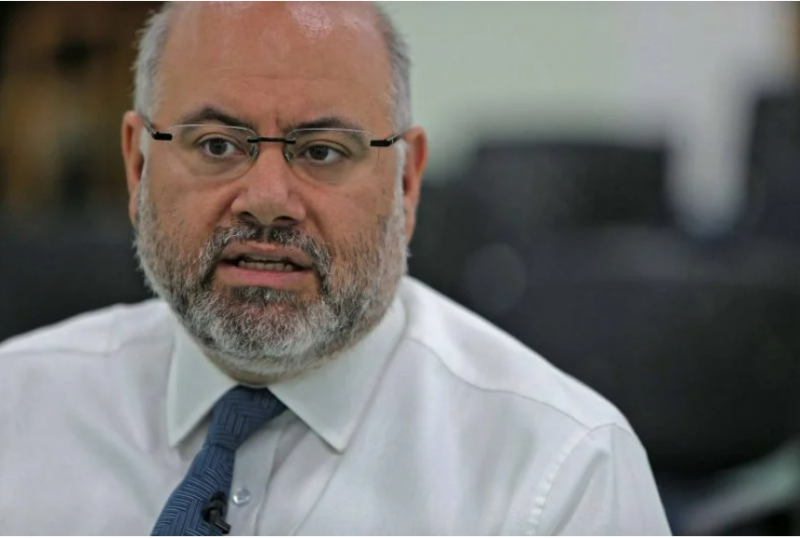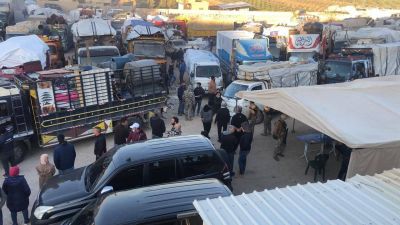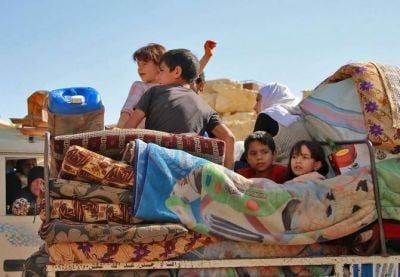
Firass Abiad, at the end of July 2021, a few weeks before his appointment as health minister in Najib Mikati's cabinet. (Credit: AFP Photo)
BEIRUT — Cases of jaundice, a medical condition involving yellowing of the skin or whites of the eyes, usually caused by a liver disease, have reportedly increased in informal Syrian camps in Lebanon, and there has also been a rise in skin rashes in the Arsal area (Baalbeck district) due to a lack of clean water, caretaker Health Minister Firass Abiad said in a statement relayed by the state-run National News Agency on Friday.
Abiad has "held several consultations on the matter, including with MPs and local officials, to discuss possible measures to curb the spread of diseases in the migrants and refugee community and prevent their potential transmission to the host community," the statement noted.
"This is especially concerning as [the underlying diseases that cause] jaundice can be contagious and the conditions in the displacement camps could lead to further spread, as well as the emergence of other epidemics," the statement added. However, it is important to clarify that providing clean water to the camps and removing sewage water is the responsibility of UNICEF, the statement said.
UN agencies facing financial cuts
Abiad reportedly contacted UNICEF's deputy representative in Lebanon, Ettie Higgins, who informed him of a "reduction in the financial grant allocated for this purpose, which has naturally impacted the services provided."
Earlier this month, Abiad was also informed by Ivo Freisen, the UNHCR Representative in Lebanon, that there has been "approximately a 50 percent reduction in health care coverage for Syrian refugees in Lebanon."
The justification for these reductions relates to budget cuts in healthcare due to ongoing global crises, from the outbreak of the Ukraine war to the Gaza conflict, the statement from Abiad's press office said.
"If the international community is concerned about the safety of refugees in their home country and opposes supporting their return, how can it neglect their health security in the country of displacement, endangering their lives and those of their hosts?" Abiad's statement asks.
"Lebanon has been suffering under a historic financial crisis for over four years, with severe consequences that continue to impose significant losses on its citizens," the statement continues, concluding that the country "cannot bear additional burdens, and the international community must take responsibility by finding a lasting solution for refugees that allows for their safe and possible return to their home country."
Lebanon's economy collapsed in late 2019, turning the country into a launchpad for informal migrants, with Lebanese joining Syrians and Palestinian refugees undertaking the dangerous sea voyages bound for Europe.
In May, EU chief Ursula von der Leyen announced $1 billion in aid for Lebanon during a visit. Several media outlets and Lebanese officials have likened the funding to a means of "bribing" the authorities to keep Syrian refugees and migrants in Lebanon.
The Lebanese government continues to discuss plans to expel illegal migrants, as well as its desire to deport those detained since April 15, while the international community opposes any non-voluntary return, particularly with regard to political refugees who risk persecution in their own country.
Such an initiative would also require the backing of the Syrian regime. From the outset, Syria has expressed its wish to open its doors to its citizens, but insists to this day on having an official interlocutor opposite.


